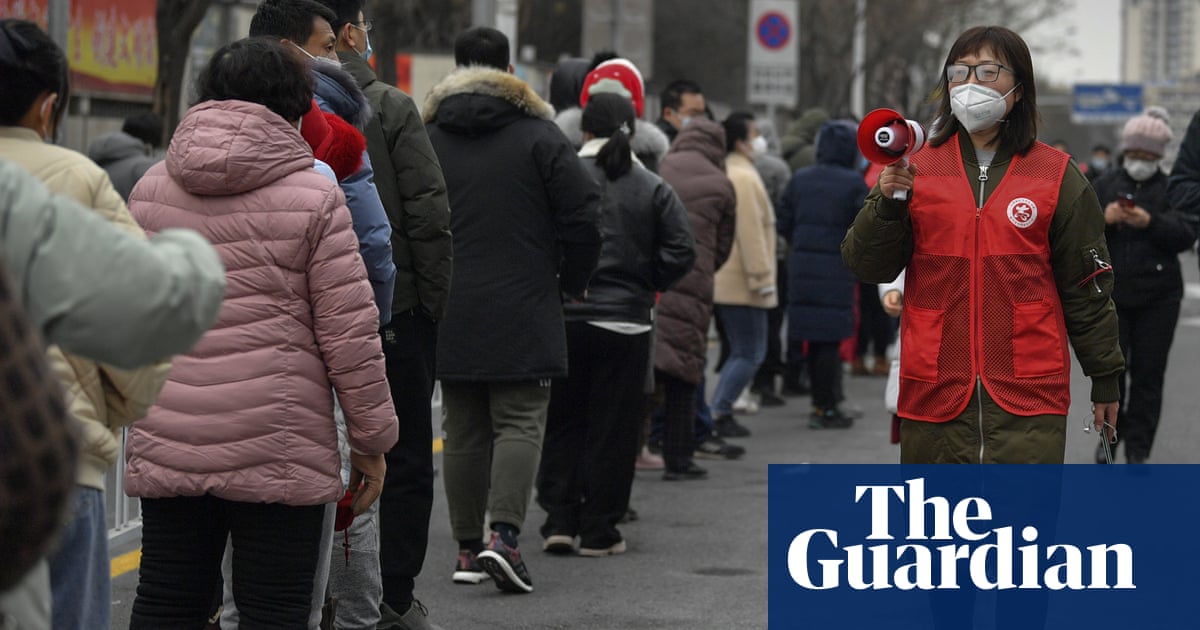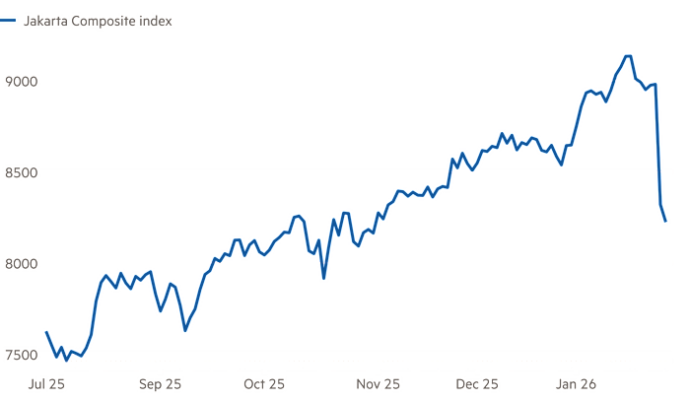
China is battling to stamp out its first outbreak of the Omicron variant, only weeks before the Chinese new year and the Beijing Winter Olympics, with cases recorded in at least two distant provinces.
On Monday, health authorities reported 97 new locally transmitted cases for the preceding 24 hours, across several cities. At least 30 cases were in Henan province, while at least 31 new cases were reported in the Tianjin, including 15 children aged five to 15.
At least two of the cases detected in the city’s Jinnan district were reported as Omicron, the latest variant of Covid-19, which is many times more transmissible and is tearing through other countries around the world. Authorities said the two patients did not have a travel history out of the city.
In Anyang, Henan province, two Omicron cases were traced to a student who had arrived from Tianjin more than 300 miles (500km) away, officials said. There were 15 cases reported in Anyang for Monday but the breakdown of variant type was not disclosed.
State media have described the outbreak as China’s “first real battle against Omicron”.
In response, Tianjin authorities have tightened controls on people’s movements, requiring residents to get approval from employers or community authorities in order to leave, and 75,680 have been quarantined, according to the Global Times. Subway lines have been closed and about 150 flights reportedly cancelled. Schools and university campuses have been closed.
About 14 million residents of Tianjin districts have been asked to stay in place and report for testing. Those who do not will have their health code changed on the widely used app that controls quarantine, travel and other pandemic related movements.
Some measures have been focused on preventing cases reaching the capital, Beijing, about 60 miles away, which is set to host the Winter Olympics next month. A party meeting including senior city officials reportedly urged rapid action and testing to create a “moat” around the city. Unnecessary travel between Tianjin and Beijing has been strongly discouraged, with those who can asked to work from home, and trains into Beijing from Tianjin have been cancelled. Road checkpoints have also been set up for vehicles entering Beijing.
In Beijing, temperature checks and QR codes have been strengthened, as well as controls and inspections at transportation hubs, schools and accommodations. The government has also warned people of punishment for concealing infections or failing to implement anti-pandemic measures adequately.
“The spring festival is approaching, the flow of people will be more frequent, and the Beijing Winter Olympics and the Winter Paralympics will be held soon,” said a government notice on Monday. “The epidemic prevention and control cannot be relaxed for a moment.”
The Chinese capital’s municipal government has urged its more than 20 million residents to stay in the city during the festive period. To avoid potential spread of the disease, Beijing’s traffic management authority also asked people to stay away from the special vehicles used to ferry athletes to and from the Winter Olympics venues in the event of a car incident.
The Games, which begin on 4 February will be kept in a “closed loop”. This means that only a limited number of spectators may be allowed in venues Overseas spectators will not be allowed to enter the country, and personnel involved in the Games will have to avoid contact with people outside the loop.
China has been committed to a zero-Covid policy, and deploys extraordinary resources including mass testing of tens of millions, targeted and blanket lockdowns, and travel restrictions, often at a moment’s notice and sometimes over just a handful of cases. Pressure has grown on authorities with the Winter Olympics around the corner, and some local officials have been punished for alleged inaction, leading to increasingly harsh responses.
The policy – and people’s support for it – has been challenged by the subsequent responses to recent outbreaks, including in Xi’an where 13 million people have spent more than two weeks in lockdown with reported instances of food shortages and delays in accessing medical care, and another 2 million locked down in Yuzhou.
The spring festival, when east Asia celebrates the lunar new year, is typically the biggest holiday of the year with hundreds of millions of people travelling across the region to see family. These festivals have been disrupted over the past two years by the pandemic and associated travel restrictions or lockdowns, with many migrant workers prevented from travelling home – often the only time of the year they get to do so.
“I haven’t been back to my hometown for Chinese new year for three years,” said one online commentator, who nonetheless urged people to reduce travel again if they could. ‘“Chinese people have a strong family concept. Last year, they called on everyone to celebrate the new year locally. Many people were late for the reunion for a year, which would inevitably lead to a collective impulse. It may be difficult to call on people to celebrate locally this year.”
Additional reporting by Xiaoqian Zhu


